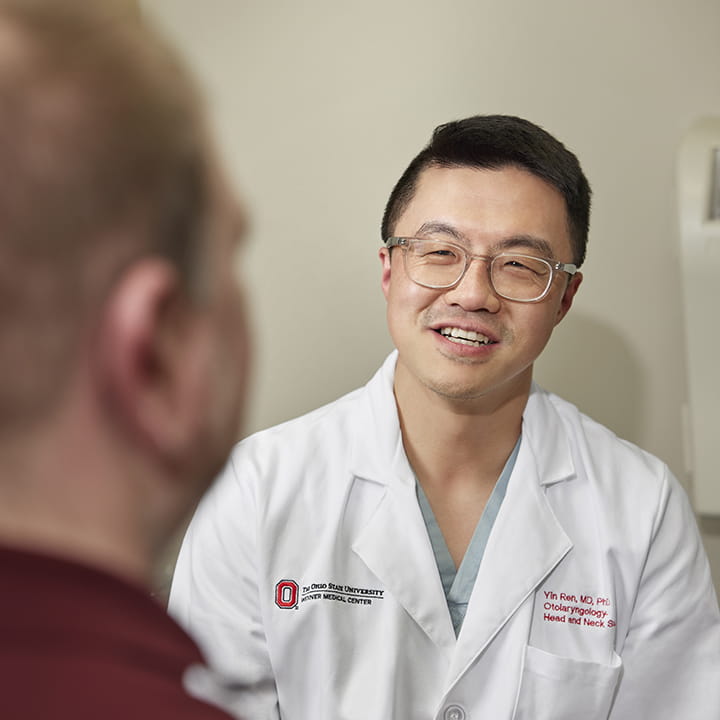 With more than three decades of experience researching and treating vestibular schwannoma (also known as acoustic neuroma), the Department of Otolaryngology – Head and Neck Surgery at The Ohio State University College of Medicine is pioneering innovative approaches to treating people with this condition.
With more than three decades of experience researching and treating vestibular schwannoma (also known as acoustic neuroma), the Department of Otolaryngology – Head and Neck Surgery at The Ohio State University College of Medicine is pioneering innovative approaches to treating people with this condition.
“Innovative technology in Ear, Nose and Throat has given a much better understanding of the disease and enabled us to come up with better and more personalized treatment options for acoustic neuroma,” says Yin Ren, MD, PhD, assistant professor of Otolaryngology – Head and Neck Surgery. “As an active clinical research program, Ohio State now has more than 30 years’ worth of data that is lending new understanding to this condition.”
Current vestibular schwannoma research at Ohio State College of Medicine includes:
- An active cochlear implant clinical trial, leveraging significant expertise in these implants, that places cochlear implants during acoustic neuroma surgery to restore hearing and improve quality of life.
- Basic scientific research to understand overactive molecules in acoustic neuroma and find drugs that can improve tumor management.
- Studies to understand the biology of tumors and the range of variability in people with acoustic neuroma, in order to to perform better and more precise surgeries, improve outcomes and identify patients who are better candidates for certain treatments.
- Research to identify predictors of key outcomes, including hearing loss and facial paralysis.
- Genetic research to understand the drivers for neurofibromatosis type 2 (NF2), and how they lead to specific disease symptoms.
- Imaging research on specialized magnetic resonance imaging (MRI) scans that can give measurements of tumor stiffness of acoustic neuromas.
Prioritizing the quality of life in patients with acoustic neuroma is at the forefront. That’s because, in severe cases, these tumors can grow to affect balance and hearing, or even put pressure on the brain stem and cerebellum, causing other issues.
While many vestibular schwannomas require a “wait and scan” approach to monitor changes in the tumor, in many cases, patients likely require active treatment from a trained team of experts.
“As a large and experienced team of neurosurgeons, radiation oncologists, audiologists, anesthesiologists, nurses, therapists and more, we can offer all approaches to support patients with acoustic neuroma,” Dr. Ren says. “Our goal is to offer the most leading-edge treatments and best counseling so patients can make the right decision for them.”
This multidisciplinary team has the advantage of being able to provide significant experience with a variety of research-backed treatment options, easing patient symptoms and improving outcomes.
“We’re not single doctors who only perform one type of procedure,” Dr. Ren says. “Patients can come to a place where we do this every day, have the most available treatment options and are continuously researching new ways to care for people with this condition.”
